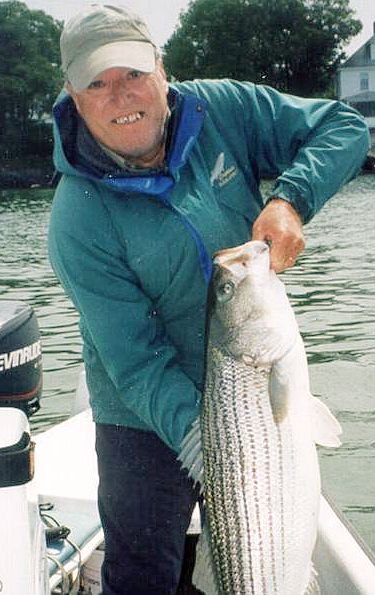Sunday, July 22, 2012
Are Striped Bass Safe To Eat or Handle?
Below is a notice from the Mass. Marine Fisheries Department. Use your own judgement. I keep a pair of gardening gloves on my boat to handle such fish and have done so for at least five years.
July 17, 2012
MarineFisheries Advisory
OCCURRENCE OF SKIN LESIONS ON STRIPED BASS
MarineFisheries has recently received reports of skin lesions on striped bass. The general condition reported has been red spotting visible along the sides of the fish. Lesions such as these can be indicative of the presence of the disease Mycobacteriosis, which is common in southern waters, especially Chesapeake Bay, but has not been documented in Massachusetts waters. The information available at this time indicates a slightly elevated occurrence of skin lesions on striped bass, likely of viral or bacterial origin, but not clearly associated with the disease organism Mycobacterium.
MarineFisheries staff has been collecting information from anglers on the prevalence and geographic distribution of the skin lesions. At present the prevalence appears to be low (<5%) coastwide but higher in fish from southern Massachusetts, primarily Buzzards Bay and the Cape Cod Canal. Internal and external examination of afflicted fish has not indicated that these lesions are associated with Mycobacteriosis. The examination of several dozen randomly collected striped bass showed no signs of abnormalities in their spleens, the hallmark indicator of the disease.
Lesions on the skin of striped bass are a relatively common occurrence and have many causative agents. The elevated prevalence seen in some areas this year may be the result of anomalously high spring and summer water temperatures seen in Massachusetts and more southerly waters. Fish with mild skin lesions are safe to handle and consume.
Some common-sense fish handling guidelines should be followed:
Wear heavy gloves to avoid puncture wounds from fish spines
If cuts, scrapes or other open or inflamed areas of your skin are present, cover hands and wrists with an impermeable barrier like a rubber or vinyl glove
Wash hands thoroughly with an antibacterial soap after handling fish
Wash off all cutting boards, surfaces, knives and other utensils used to process raw fish with warm soapy water
Discard fish with large open lesions or darkened patches in the fillets
Persons who exhibit signs of infection on their hands after handling fish should contact their physician immediately
MarineFisheries will continue to monitor the recreational and commercial harvests for increased prevalence of skin lesions. We encourage fishermen who observe lesions to contact us at marine.fish@state.ma.us and report the geographic location.
Subscribe to:
Post Comments (Atom)


No comments:
Post a Comment